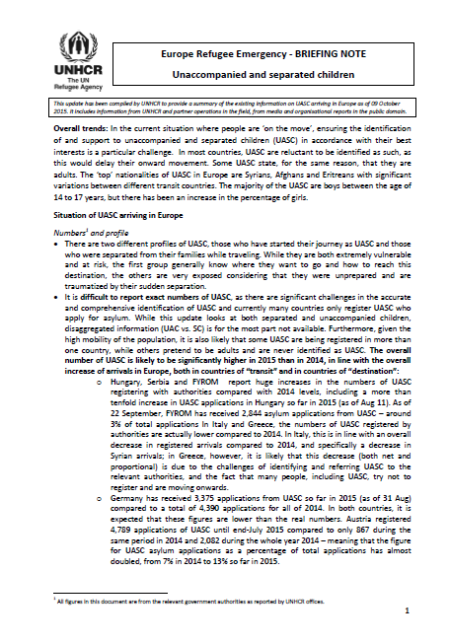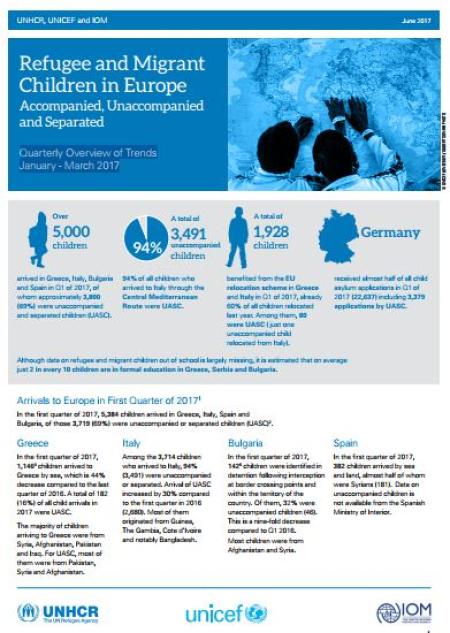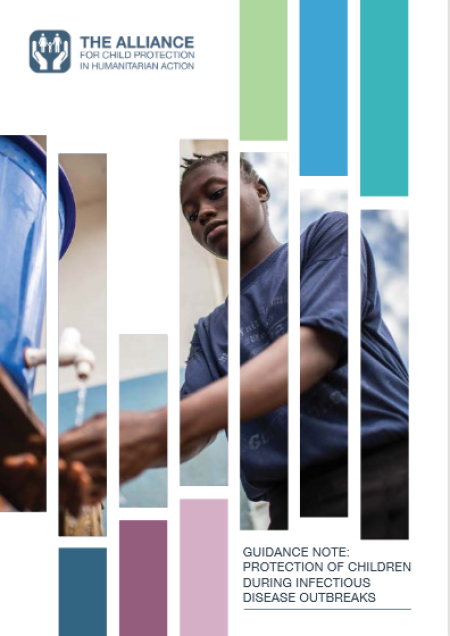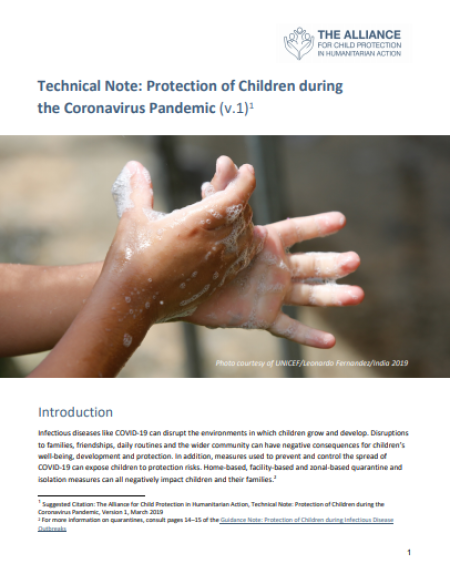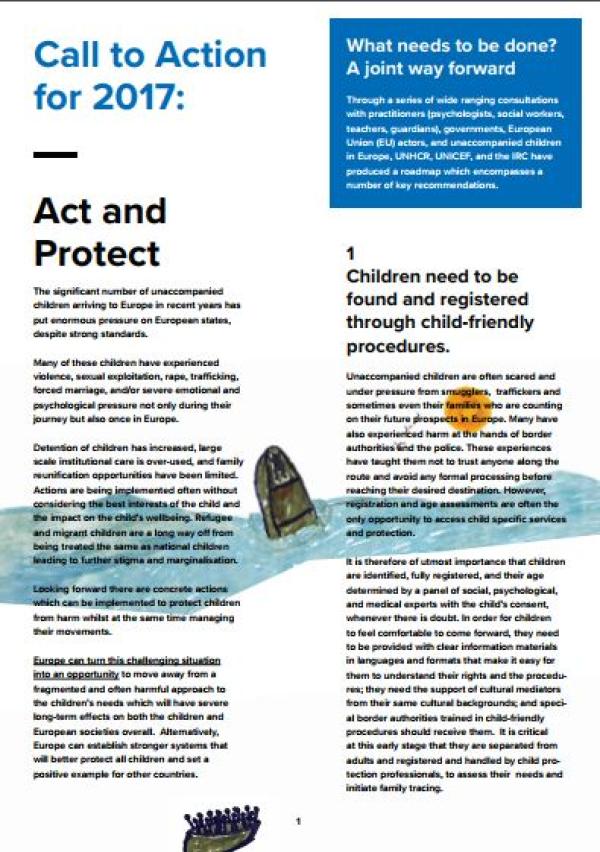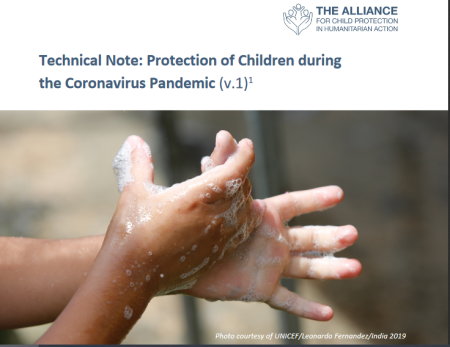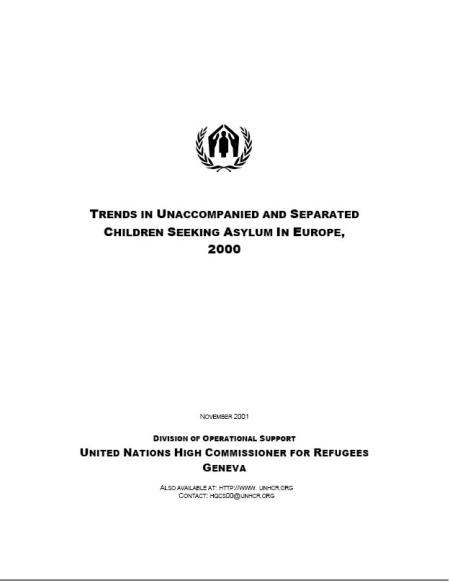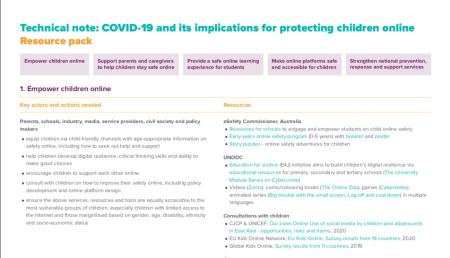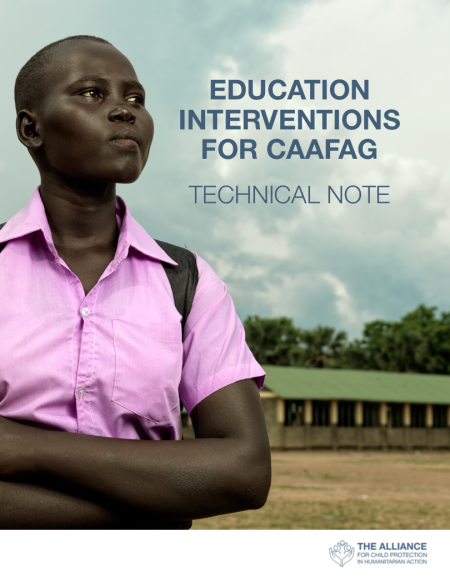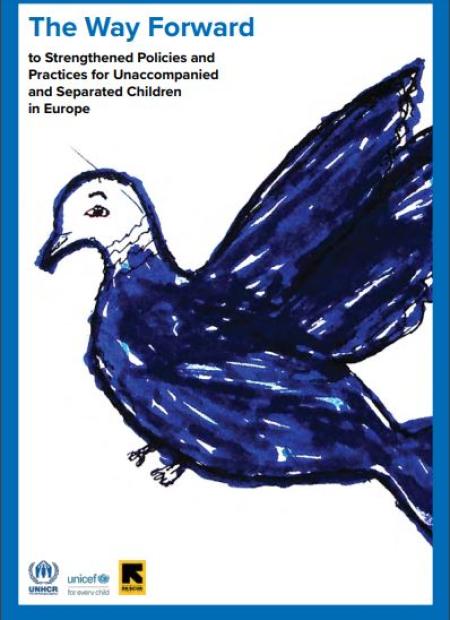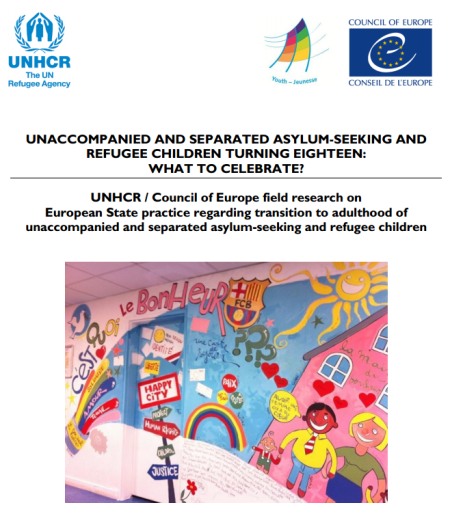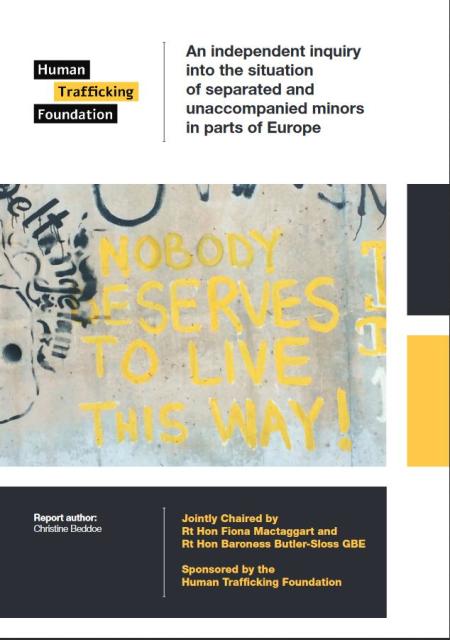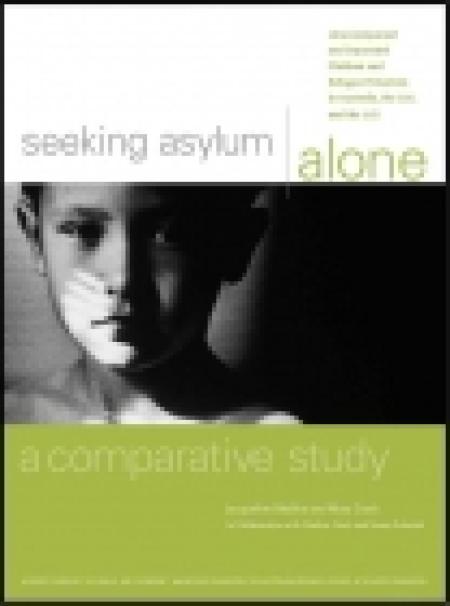
The following briefing note from the UNHCR outlines overall trends in the situation of the people on the move, indentifying particular challenges associated with the identification of and support to unaccompanied and separated children (UASC) in accordance with their best interests. The report finds that in most countries, UASC are reluctant to be identified as such, as this would delay their onward movement.
Some UASC state, for the same reason, that they are adults. The ‘top’ nationalities of UASC in Europe are Syrians, Afghans and Eritreans with significant variations between different transit countries. The majority of the UASC are boys between the age of 14 to 17 years, but there has been an increase in the percentage of girls.
Read the full brief for more information.


